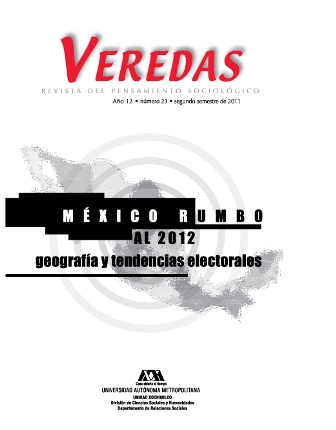El Instituto Federal Electoral y los partidos políticos
¿Un juego de suma cero?
Abstract
The construction of autonomous electoral institutions in Mexico is a result of political negotiation process that aims to end –or at least to limit– the long tradition of government voting control and manipulation and society’s trust lack in the elections. Autonomy is a relational concept defined from an internal dimension associated with institutional coherence to fulfill its mission and other external related to its independence from the actors and power groups. In the case of the Federal Electoral Institute, autonomy in its external dimension refers to its independence from government and political parties. Electoral reforms undertaken since its inception in 1990 have been relatively successful in relation to its empowerment from the Executive Power, but the power the political parties have taken under the same electoral reforms have made them a sort of council shareholders with high pressure capacity on institutional life. Thus, the electoral reforms that yield a paradoxical result is the creation of an institution responsible for organizing elections with growing powers faced to parties converted into powerful electoral business and willing to violate or circumvent regulations based on their interests.





